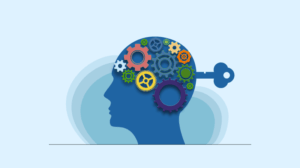If you have an anxious attachment, then Cognitive Behavioral Therapy (CBT) may be a good treatment option for you. CBT is a type of therapy that helps you change the way you think and behave. In this blog post, we will discuss what CBT is, and how it can help people with anxious attachment. We will also provide tips on how to find a therapist who specializes in CBT for anxious attachment.
Contents
- 1 What Is Anxious Attachment?
- 2 Is CBT Good For Attachment Issues?
- 3 What Techniques Are Involved In CBT For Anxious Treatment?
- 4 What Are The Benefits Of CBT For Anxious Attachment?
- 5 Finding a CBT Therapist for Anxious Attachment
- 6 Who Is CBT Not Recommended For?
- 7 How Can I Self-Manage Anxious Attachment?
- 8 Conclusion
What Is Anxious Attachment?
 Anxious attachment is a type of attachment style in which an individual feels insecure, worried, and preoccupied with their relationship with their partner. People with an anxious attachment style often worry that their partner doesn’t care about them or will eventually leave them.
Anxious attachment is a type of attachment style in which an individual feels insecure, worried, and preoccupied with their relationship with their partner. People with an anxious attachment style often worry that their partner doesn’t care about them or will eventually leave them.
They may also struggle to express their own needs and feelings without fear of rejection or abandonment. People with an anxious attachment style can tend to be highly emotional, dependent upon their partner for validation, and prone to bouts of jealousy.
This condition may seem trivial to those who don’t experience it. But for an individual with an anxious attachment style, it can be a very real and debilitating issue. Working on building trust, communication skills, and a secure bond with one’s partner are all important steps in overcoming anxious attachment issues.
Is CBT Good For Attachment Issues?
Yes, CBT can be a very effective tool for helping to address anxious attachment issues. Through CBT, you will learn how to identify and replace negative thought patterns with more positive and healthy ones. You will also learn how to manage your emotions in a healthier way so that you don’t become overwhelmed by them.
There have been several research studies conducted on the use of CBT for anxious attachment, and these studies have consistently found that it is an effective treatment option. In addition to helping to manage symptoms of anxious attachment, CBT can also provide benefits such as improved communication skills and increased self-esteem.
What Techniques Are Involved In CBT For Anxious Treatment?
 There are several different techniques involved in CBT for anxious attachment, including:
There are several different techniques involved in CBT for anxious attachment, including:
Cognitive restructuring
One of the foremost techniques used in CBT for anxious attachment is cognitive restructuring. Cognitive restructuring involves challenging irrational thoughts and replacing them with more rational ones that are better suited to the situation. This helps individuals improve their coping skills and reduce anxiety levels.
Exposure therapy
Exposure therapy is another key technique utilized when treating anxious attachment. This therapy gradually exposes a person to anxiety-provoking situations or objects. While teaching them effective coping strategies in order to reduce their fear.
Relaxation techniques
Relaxation techniques are also used to help those with anxious attachment de-stress and manage their emotions more effectively. These relaxation techniques can include deep breathing exercises, progressive muscle relaxation, and guided imagery. For instance, an individual can close their eyes and imagine themselves in a calming, safe place.
Mindfulness
It is important to practice mindful awareness in order to reduce the symptoms of anxious attachment. Mindfulness involves being aware of one’s thoughts, feelings, and body sensations. It can help individuals gain insight into their thoughts and feelings, as well as foster greater self-compassion.
Positive reinforcement
Positive reinforcement can be used to help those with anxious attachment recognize and reward healthy coping behaviors. This type of reinforcement helps individuals develop a more positive outlook on life and build healthier coping mechanisms.
Communication skills training
Finally, communication skills training is an important part of CBT for anxious attachment. Fostering effective communication skills can help individuals express their thoughts and feelings in a more constructive way. It can also help them build healthy relationships and better manage the stressors they may face.
By utilizing these various techniques, people with anxious attachments can learn to manage. And reduce their anxiety levels, gain better insight into themselves, and develop healthier coping strategies.
What Are The Benefits Of CBT For Anxious Attachment?
 If you are struggling with anxious attachment, then CBT can be a great way to gain control over your emotions and behaviors. Some of the benefits of CBT for anxious attachment include:
If you are struggling with anxious attachment, then CBT can be a great way to gain control over your emotions and behaviors. Some of the benefits of CBT for anxious attachment include:
- Improved self-esteem – You will learn to recognize and challenge negative thoughts about yourself, which can help you to improve your self-esteem and confidence.
- Better communication – You will learn how to communicate effectively with your partner, enabling you to build a healthier and more secure connection.
- Better coping skills – You will gain the tools and techniques necessary to manage your emotions in a healthy way, which can help reduce stress levels.
- Reduced anxiety – By addressing the root causes of anxiety, CBT can help you to reduce your overall levels of anxiety.
- Better relationships – You will learn how to identify and break patterns of behavior that perpetuate anxious attachment, so you can pursue healthier relationships.
- Overall improved well-being – By learning these new skills, you can improve your mental health and overall well-being.
CBT for anxious attachment is an effective way to gain control over your emotions and behavior, enabling you to develop healthier relationships. With the right professional help and support, you can learn how to manage your emotions in a healthy way and build strong, secure connections with others.
Finding a CBT Therapist for Anxious Attachment
If you are looking for a therapist who specializes in CBT for anxious attachment, here are a few tips that can help:
- Look for a therapist who has experience – Ask questions about their training and experience, so you can feel confident that they are qualified to work with your specific needs.
- Make sure the therapist is licensed in your area – It’s important to ensure that the therapist you choose is licensed and accredited in your area so that you can feel confident about the services they provide.
- Check for online resources – Many therapists now offer online resources such as webinars, podcasts, blogs, and other materials that can help you understand and practice the techniques of CBT.
- Look for referrals from friends or family – If someone close to you has had a positive experience with a therapist, it’s always worth asking for their advice.
- Research the therapist’s background – Make sure to do some research on the therapist before you commit. So you can feel confident that they have the right qualifications and experience to meet your needs.
By following these tips, you can find the right CBT therapist to help you manage your anxious attachment and build healthier relationships. Although finding the right CBT therapist for anxious attachment can be daunting, with the right approach and research, you can find a therapist that meets your needs.
Who Is CBT Not Recommended For?
Though CBT for anxious attachment is widely regarded as an effective treatment, it is not suitable for everyone. For example, CBT is not recommended for people who are experiencing severe depression or anxiety that requires medical intervention.
In addition, CBT may not be the right choice for people who are unable to make healthy lifestyle changes due to physical or mental health conditions. It is also important to be aware that CBT focuses primarily on changing behavior, rather than addressing underlying emotional issues.
If you are unsure whether CBT is an appropriate treatment for your anxious attachment, it’s important to speak to a qualified mental health professional. They will be able to assess your situation and recommend the best course of action for you.
How Can I Self-Manage Anxious Attachment?
 Sometimes, CBT may not be enough to help manage anxious attachment. It’s important to focus on developing self-management skills. As well as seeking professional help when needed. So, here are a few tips that can help you manage anxious attachment:
Sometimes, CBT may not be enough to help manage anxious attachment. It’s important to focus on developing self-management skills. As well as seeking professional help when needed. So, here are a few tips that can help you manage anxious attachment:
- Establish healthy boundaries: Anxious attachments can sometimes manifest in clingy, possessive, or controlling behaviors. It’s important to be aware of and establish healthy boundaries for yourself and others.
- Develop self-awareness: Pay attention to your thoughts and feelings, as well as their triggers. Knowing what emotions you are feeling and why can help you prepare for situations that may trigger anxious attachment.
- Practice self-care: Self-care is an important part of managing anxious attachment. Take time to practice activities such as mindfulness, yoga, reading, or anything else that helps you relax and take care of yourself.
- Practice communication and assertiveness: Communication is key to managing anxious attachment. Learn to express yourself in a clear and respectful way, as well as be assertive when necessary.
- Practice mindfulness and acceptance: Mindfulness can help you manage anxious attachment by helping you become more aware of your thoughts and feelings. As well as develop an understanding of why they may be happening. Additionally, it’s important to practice acceptance in order to let go of negative patterns or behaviors.
- Seek outside help: If the above tips don’t seem to be enough, it’s important to seek professional help in order to effectively manage anxious attachment. A therapist can help you identify and work through underlying issues that may be causing your anxious attachment.
By using the above tips, you can begin to take steps toward managing anxious attachments and developing healthy attachments with others. Remember to practice self-care and be mindful of your thoughts and feelings. With the proper support, you can learn how to manage anxious attachments and create healthier relationships.
Conclusion
To conclude, CBT for anxious attachment is a powerful tool to help you manage your emotions and build secure relationships. With the right professional help and support, you can learn how to identify and break patterns of behavior that perpetuate anxious attachment. So you can pursue healthier relationships.
As long as you are aware of who would benefit from this type of treatment, CBT for anxious attachment can be an effective way to improve your mental health and overall well-being.
For more information, please contact MantraCare. Anxiety is a feeling of fear, worry, and unease often related to an upcoming event or uncertain outcome. If you have any queries regarding Online Anxiety Counseling experienced therapists at MantraCare can help: Book a trial Anxiety therapy session


